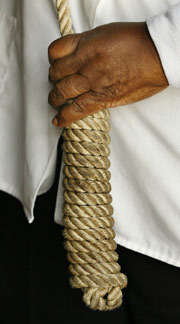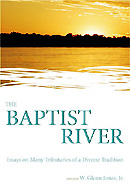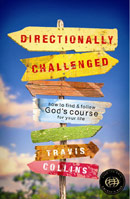Study links video violence to aggressive behavior
Posted: 12/05/07
Study links video violence
to aggressive behavior
By Ken Camp
Managing Editor
Repeated exposure to video violence—particularly interactive games—influences aggressive behavior more than drug use, poverty or domestic abuse, a University of Michigan researcher has asserted.
In fact, the correlation between media violence and aggression is at least as strong as the link between exposure to second-hand smoke and lung cancer, said Brad Bushman, psychology professor and research associate in the university’s Institute for Social Research.
Bushman, who focuses on laboratory experiments to assess the immediate effects of exposure to media violence, is collaborating with social psychologist Rowell Huesmann, who examines the long-term impact of repeated exposure, in an ongoing major study funded by the U.S. Centers for Disease Control & Prevention and the National Institutes of Health.
Their findings so far point to a clear relationship between media violence and aggression.
“A high and steady diet of TV violence in early childhood increases the risk that both females and males from all social backgrounds will become violent, aggressive adults,” Huesmann said in a statement released by the research institute. “Media violence can affect any child from any family—not just those who are violence-prone.”
Huesmann based his conclusion on analysis of studies that have tracked 846 individuals from Columbia County, N.Y., and their children more than 40 years, examining the amount of violence the subjects viewed on television when they were young and what impact it had on their behavior later.
By the time men were in their early 20s, those who had been exposed to large doses of violent TV shows between ages 6 and 9 were twice as likely as other men to become physically aggressive with their spouses and three times more likely to be convicted of crime, Huesmann and his colleagues discovered.
Women who were heavy viewers of violent TV as children were four times as likely as other women to have punched, beaten or choked another adult, the researchers found.
But violent video games appear even more pernicious than televised violence, Bushman said.
“Playing video games—particularly first-person shooter games—may be much more dangerous than watching violent television shows or movies,” he said.
“Playing games is highly active, and it requires players to identify with violent characters. It also rewards aggression, and the amount of violence is almost continuous.”
Brain function changes when players become immersed in an aggressive video game, and it desensitizes chronic players to real-life violence, Bushman has demonstrated in the laboratory.
The “compelling and common sense study” underscores the message that video images cause violent images to become embedded in the imagination, said Suzii Paynter, director Texas Baptists’ moral concerns and public policy agency.
“Violence grows into a lens and a behavioral probability that is triggered whenever the imagination is triggered. Repetition builds the habit of expecting violence and the danger of finding it familiar so that violent acts are rationalized as normal. When violence becomes normal, it prevents us from seeing ourselves and others as God intends for us to see them,” said Paynter, director of the Baptist General Convention of Texas’ Christian Life Commission.
In an interview, Bushman offered several recommendations to parents:
• Restrict access. “Most doctors recommend no more than two hours of media per day, and that’s all kinds of media—TV, video games, computers or whatever,” he said.
• Block objectionable content. Use available parental blocks on media to prevent unsupervised children from gaining access to inappropriate content.
• Communicate. “Watch the programs or play the games with the kids, and then talk about it,” he said. “Unfortunately, only about 10 percent of parents do it. And that’s a pity. … Many parents use media as a babysitter, and it’s a pretty bad one.”
• Keep it in the open. “Move the media to a public location,” he suggested. “Don’t allow kids to have televisions or game consoles in their rooms. Keep them in public places where they are easier to monitor.”
• Teach decision-making skills. “Ultimately, it comes down to teaching kids to make good choices,” he said. “You can’t watch them all the time. But when they are at a friend’s house, it is hoped that their parents will have taught them how to make the right choices, whether they are with them or not.”
In addition to shielding impressionable children from violent images, parents can help children make wise choices by exposing them to alternative images—real-life examples of peace and love, Paynter added.
“As adults, we need to model self-control and moderation. We need to talk explicitly about the decisions that we make to be self-controlled in matters of violence,” Paynter said. “These decisions are often invisible to our children, but they can learn when we share just how and why we are making choices for non-violent responses to feelings of anger or fear.
“Jesus’ examples and teaching about violence are very relevant to today’s game generation. Don’t wait to share these parts of the gospel until adolescence, but share Jesus’ example with children of all ages, showing Jesus’ strength in the face of temptation and evil.”



